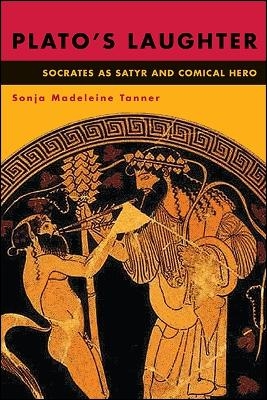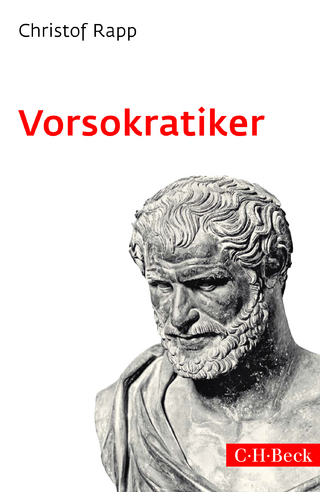
Plato's Laughter
State University of New York Press (Verlag)
978-1-4384-6737-5 (ISBN)
Plato was described as a boor and it was said that he never laughed out loud. Yet his dialogues abound with puns, jokes, and humor. Sonja Madeleine Tanner argues that in Plato's dialogues Socrates plays a comical hero who draws heavily from the tradition of comedy in ancient Greece, but also reforms laughter to be applicable to all persons and truly shaming to none. Socrates introduces a form of self-reflective laughter that encourages, rather than stifles, philosophical inquiry. Laughter in the dialogues—both explicit and implied—suggests a view of human nature as incongruous with ourselves, simultaneously falling short of, and superseding, our own capacities. What emerges is a picture of human nature that bears a striking resemblance to Socrates' own, laughable depiction, one inspired by Dionysus, but one that remains ultimately intractable. The book analyzes specific instances of laughter and the comical from the Apology, Laches, Charmides, Cratylus, Euthydemus, and the Symposium to support this, and to further elucidate the philosophical consequences of recognizing Plato's laughter.
Sonja Madeleine Tanner is Associate Professor of Philosophy at the University of Colorado, Colorado Springs, and the author of In Praise of Plato's Poetic Imagination.
Acknowledgments
Introduction
The Superiority Theory of Laughter
Playful and Consequential Laughter
The Incongruity Theory of Laughter
The Breakdown
1. The Apology of Socrates: Is Socrates a Comical Hero?
The Comical Apology
Socrates and the Homeric Hero
Socrates and the Traits of Comical Heroes
Humanity as Laughable and Self-Directed Laughter
2. The Laches’s Comical Structure and “The Refined Thinkers Who Are Really Poor”
The Laches’s Comical Structure
Lysimachus as a Comical Figure
Nicias as a Comical Figure
Stesilaus as a Comical Figure
Laches as a Comical Figure
Courage, Laughter, and Self-Knowledge
Conclusion
3. Tumbling Down To Earth: Laughter, Limitation, and Self-Knowledge in Plato’s Charmides
Laughter on the Bench
Tragic and Comic Laughter
Socratic Versus Critian Sophrosyne: Theory and Practice
Conclusion
4. Naming the Nameless: Logos, Laughter, and Self-Forgetting
Laughter and Logos in the Cratylus
Laughter and False Speaking in the Euthydemus
Logos and the Satirical
5. Bawdy Politics: Satyrical Laughter and Self-Knowledge in the Symposium
Aristophanes’s Hiccups
Socrates as Satyr
Conclusion
Conclusion Poneria, Self-Knowledge, and Comical, Platonic Optimism
Notes
Works Consulted
Index
| Erscheinungsdatum | 17.02.2018 |
|---|---|
| Reihe/Serie | SUNY series in Ancient Greek Philosophy |
| Zusatzinfo | Total Illustrations: 0 |
| Verlagsort | Albany, NY |
| Sprache | englisch |
| Maße | 152 x 229 mm |
| Gewicht | 227 g |
| Themenwelt | Geisteswissenschaften ► Philosophie ► Philosophie Altertum / Antike |
| ISBN-10 | 1-4384-6737-0 / 1438467370 |
| ISBN-13 | 978-1-4384-6737-5 / 9781438467375 |
| Zustand | Neuware |
| Informationen gemäß Produktsicherheitsverordnung (GPSR) | |
| Haben Sie eine Frage zum Produkt? |
aus dem Bereich


